#dartnell
Explore tagged Tumblr posts
Text

Peruvian aviator Jorge Antonio Chávez Dartnell on a H. Farman biplane
French vintage postcard
#photo#ansichtskarte#aviator#postal#dartnell#farman#postkaart#sepia#french#tarjeta#ephemera#photography#carte postale#historic#jorge antonio chávez dartnell#jorge#biplane#h. farman#chvez#briefkaart#antonio#postcard#vintage#postkarte#peruvian
38 notes
·
View notes
Text

>>> Collection Shirtless Smokers | Colors*
#493
[ Model : Jon Dartnell by Lulu Ash ]
#@p#shirtlesssmokerscl#shirtlesssmokers#shirtlessnotattoo#shirtlessnotattoocolor#smokingmodels#smokingmodelscl#jon dartnell#lulu ash#united kingdom guys#cigarette#smokingguys#smokingguyscl
18 notes
·
View notes
Text
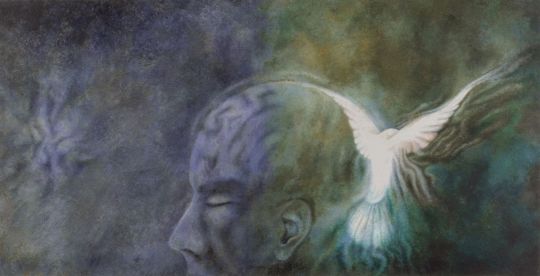
29 notes
·
View notes
Text
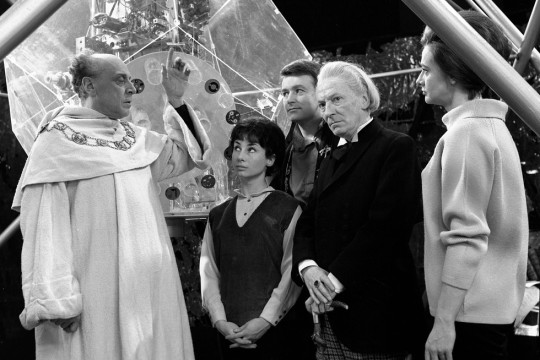
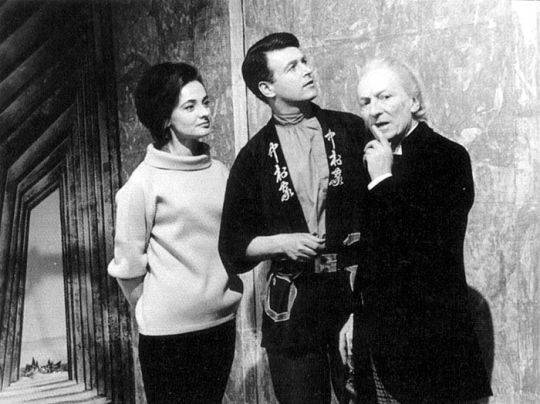
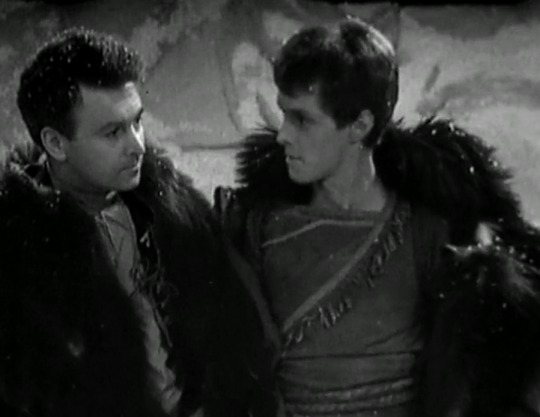
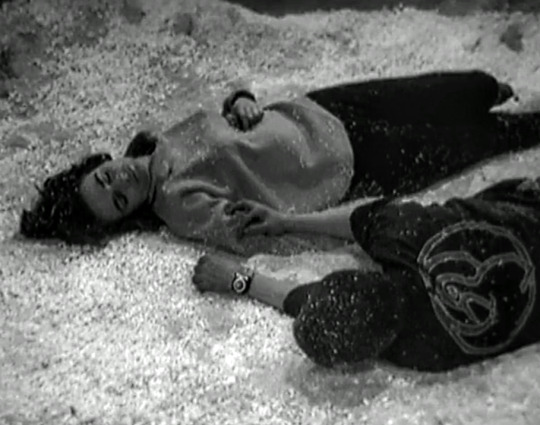




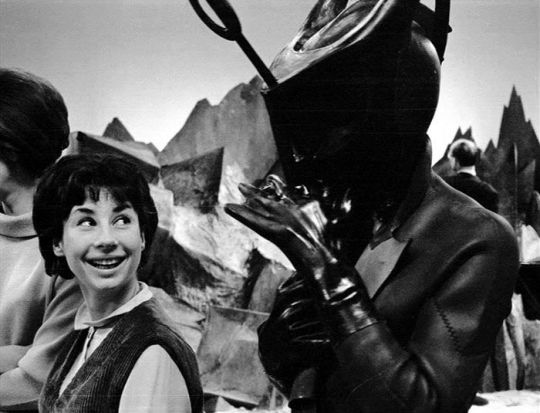
Doctor Who: The Keys of Marinus (1.5, BBC, 1964)
"I want to speak of your father. You know, he was a very wise and brilliant man and I know how you felt when you learned of his death."
"And his life's work destroyed."
"Oh, no, no, no, no, I wouldn't say that. His work will go on, only not quite in the same way. But I don't believe that man was made to be controlled by machines. Machines can make laws, but they cannot preserve justice; only human beings can do that."
#doctor who#classic doctor who#the keys of marinus#1964#bbc#terry nation#john gorrie#william hartnell#jacqueline hill#william russell#carole ann ford#george coulouris#robin phillips#katherine schofield#donald pickering#fiona walker#henley thomas#stephen dartnell#francis de wolff#edmund warwick#raf de la torre#another old favourite from childhood. i distinctly remember first watching this with my bro as a nipper; he hated it (boring and naff) but#i was entranced; something about all those mini adventures strung together‚ the different locations and traps and menaces. it.. doesn't#entirely hold up to my childhood memories (tho I'm surprised to read so much antipathy towards the serial) but considering the complete#lack of money available (post Marco Polo extravagance) and the ambitious multiple sets and costume changes‚ i think the team did fairly#well. surprised to find that‚ despite Coulouris' Arbitan being seared into my mind as a main player of this story‚ he only actually appears#in part 1. the script isn't Nation at his best (but as ever i love his imagination in alien world building‚ with acid seas and glass#beaches) and the plot does Susan dirty (reduced to quivering child for much of the story‚ where's the alien brilliance of the first story?)#but Barbara gets a good showing here‚ particularly in part 2 (the brains with eyes! they shouldn't be adorable but they are). the trial ep#is a little clunkier‚ slowing down the pace as the story starts to wrap up‚ but I'm still quite fond of this silly story
66 notes
·
View notes
Text
I finished Acceptance by Jeff Vandermeer a couple days ago, maybe a week?
I liked it. But I didn’t like it nearly as much as Annihilation. I liked it more than Authority.
The draw of Annihilation to me is the biologist and her gloriously unreliable narration, and the setting of Area X itself. Large swathes of Acceptance and all of Authority completely lack these draws. So I just don’t find them engaging in the same way.
I recognise their merits, but where Annihilation just completely absorbs me, the sequels feel like harder work and bore me at times.
That being said, there was a part in Acceptance narrated by the biologist, which I absolutely adoredddddd.
I also liked Saul quite a lot, as a character I found him interesting, so I really enjoyed his chapters too.
Control’s I was never going to like, his narration sends me to sleep. The Director’s chapters were inconsistent, sometimes as dull as Control’s but sometimes as engaging as Saul.
#reading update#siph speaks#i have been reading btw. i just started like 4 diff books#origins by lewis dartnell. on the origin of species. the mountain in the sea#im part way through all three of these#annihilation
2 notes
·
View notes
Text
This sounds like an innuendo!
#for context: they are dating but his mind hasnt been clear for awhile#i realize now the context doesnt help that much#doctor who#classic doctor who#old doctor who#the sensorites#stephen dartnell#ilona rodgers#a thick juicy steak!#a small juicy fruit!!
5 notes
·
View notes
Text
Dartnell Road amenity area public meeting, Nov 20
Continue reading Untitled

View On WordPress
0 notes
Text
I regret reading Lewis Dartnell's apocalypse prep book "The Knowledge: How to Rebuild our World from Scratch" in 2018 because (1) I retained nothing, (2) if civilization ever collapses I'll be harassed by crucial details dancing out of mental reach for the rest of my brief life
48 notes
·
View notes
Text
Compiled a bunch of reading lists/recommendations in my notes
Zen in the Art of Archery by Eugen Herrigel
A Doll’s House by Henrik Ibsen
The Garden Party by Katherine Mansfield
Rosencrantz and Guildenstern Are Dead by Tom Stoppard
And Strange at Ecbatan the Trees by Michael Bishop
In Between the Sheets by Ian McEwan
Invisible Cities by Italo Calvino
Amusing Ourselves to Death: Public Discourse in the Age of Show Business by Neil Postman
Camp Concentration by Thomas Disch
Tropic of Cancer by Henry Miller
The Drowned World by J.G. Ballard
Winesburg, Ohio by Sherwood Anderson
Engines of Logic: Mathematicians and the Origin of the Computer by Martin Davis
Go Tell It on the Mountain by James Baldwin
Notes of a Native Son by James Baldwin
Polemics by Alain Badiou
Smalltalk Best Practice Patterns by Kent Beck
Speedboat by Renata Adler
The Dynamics of Creation by Gregory Bateson
The Theoretical Minimum: What You Need to Know to Start Doing Physics by Leonard Susskind
A Clockwork Orange by Anthony Burgess
Hard to Be a God by the Strugatsky Brothers
The Invincible by Stanisław Lem
At Swim-Two-Birds by Flann O’brien
Appointment in Samarra by John O’Hara
Nickel and Dimed: On (Not) Getting By in America by Barbara Ehrenreich
Piranesi by Susanna Clarke
Down and Out in Paris and London by George Orwell
Far Away and Long Ago by W.H. Hudson
The Life of Jesus by Ernest Renan
The Maltese Falcon by Dashiell Hammett
The Stone Leopard by Colin Forbes
The Dream Master by Roger Zelazny
The Exile Waiting by Vonda McIntyre
Valis by Philip K. Dick
Nova by Samuel Delany
The Day of the Triffids by John Wyndham
The Fifth Head of Cerberus by Gene Wolfe
Martian Time Slip by Philip K. Dick
Ubik by Philip K. Dick
Lancelot by Walker Percy
Rabbit, Run by John Updike
Pulphead: Essays by John Jeremiah Sullivan
Laughter in the Dark by Vladimir Nabokov
A Beautiful Question: Finding Nature's Deep Design by Frank Wilczek
A Farewell to Arms by Ernest Hemingway
Bicycling Science (MIT Press) by David Gordon Wilson
Codex Seraphinianus by Luigi Serafini
Epic Measures: One Doctor. Seven Billion Patients by Jeremy R. Smith
How to Be Alone: Essays by Jonathan Frazen
On Beauty by Umberto Eco
On Ugliness by Umberto Eco
Snow Falling on Cedars by David Guterson
South Wind by Norman Douglas
The Dispossessed by Ursula K. Le Guin
The Drunkard's Walk: How Randomness Rules Our Lives by Leonard Mlodinow
The Infinite Resource: The Power of Ideas on a Finite Planet by Rainer Zitelmann
The Knowledge: How to Rebuild Civilization in the Aftermath of a Cataclysm by Lewis Dartnell
The Soul of A New Machine by Tracy Kidder
The Upside of Stress: Why Stress Is Good for You, and How to Get Good at It by Kelly McGonigal
The World Without Us by Alan Weisman
This Will Make You Smarter by John Brockman (Editor)
Uncontrolled: The Surprising Payoff of Trial-and-Error for Business, Politics, and Society by Jim Manzi
Visual Explanations: Images and Quantities, Evidence and Narrative by Edward Tufte
Wonderland by Joyce Carol Oates
Wuthering Heights by Emily Brontë
Lady Chatterley's Lover by D.H. Lawrence
On the Road by Jack Kerouac
Handmaid’s Tale by Margaret Atwood
Childhood; Boyhood; Youth by Leo Tolstoy
Underground Railroad by Colson Whitehead
The World Without Us by Alan Weisman
Life of Pi by Yann Martel
The Sound and the Fury by William Faulkner
Run Rabbit by John Updike
House of Seven Gables by Nathaniel Hawthorne
Blood Meridian by Cormac McCarthy
The Jungle by Upton Sinclair
Life of Pi by Yann Martel
Tinker, Tailor, Soldier, Spy by John Le Carré
Master and Commander by Patrick O’Brien
The Master and Margarita by Mikhail Bulgakov
Midnight in the Garden of Good and Evil by John Berendt
A Confederacy of Dunces by John Kennedy Toole
The Coalwood Way by Homer Hickam
Hail and Farewell by George Moore
The American by Henry James
Victory by Joseph Conrad
Collected Poems by Robert Lowell
Collected Poems by W.H. Auden
Guerrillas by V.S. Naipaul
Madame Bovary by Gustave Flaubert
Sanctuary by William Faulkner
The Berlin Stories by Christopher Isherwood
The Collected Poems by Wallace Stevens
The Executioner's Song by Norman Mailer
The Good Soldier by Ford Madox Ford
The Short Stories of Guy de Maupassant by Guy de Maupassant
Watership Down by Richard Adams
The Ideological Origins of the American Revolution by Bernard Bailyn
Victory by Joseph Conrad
Grapes of Wrath by John Steinbeck
Life of Pi by Yann Martel
Cat's Eye by Margaret Atwood
The Enormous Room by E.E. Cummings
The Open Boat by Stephen Crane
The Best American Humorous Short Stories by Alexander Jessup
The Old Wives’ Tale by Arnold Bennett
The Red and the Black by Stendhal
The Revolt of the Angels by Anatole France
The Overstory by Richard Powers
Her Smoke Rose Up Forever by James Tiptree Jr.
Hyperion by Dan Simmons
Brothers Karamazov by Fyodor Dostoyevsky
Demon Copperhead by Barbara Kingsolver
Possession by A.S. Byatt
The Glass Bead Game by Hermann Hesse
De Facto Inclusions of Italo Calvino: The Baron in the Trees; The Nonexistent Knight; The Cloven Viscount by Italo Calvino
The Blue Hotel by Stephen Crane
Sister Carrie by Theodore Dreiser
Buddenbrooks by Thomas Mann
Of Human Bondage by Somerset Maugham
The Oxford Book of English Verse
Foucault's Pendulum by Umberto Eco
Battle Royale by Koushun Takami
The Oath by John Lescroart
Blind Assassin by Margaret Atwood
Midnight’s Children by Salman Rushdie
The Corrections by Jonathan Franzen
A Little Life by Hanya Yanagihara
The Brothers Karamazov by Fyodor Dostoyevsky
Swann’s Way by Marcel Proust
The Brothers Karamazov by Fyodor Dostoyevsky
Anna Karenina by Leo Tolstoy
John Keats and Percy Bysshe Shelley: Complete Poetical Works
Within a Budding Grove by Marcel Proust
Rainbow Six by Tom Clancy
The Power Broker: Robert Moses and the Fall of New York by Robert Caro
Jonathan Strange & Mr Norrell by Susanna Clarke
Way of Kings by Brandon Sanderson
War and Peace by Leo Tolstoy
4 notes
·
View notes
Text
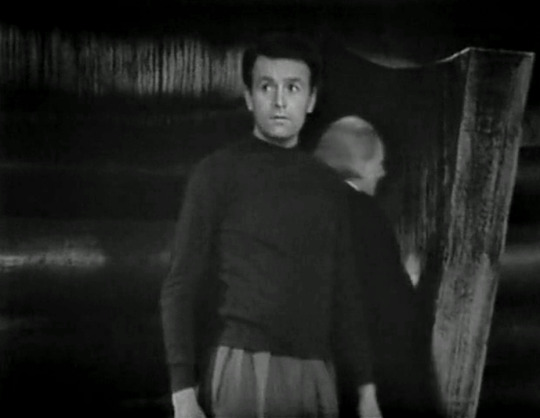


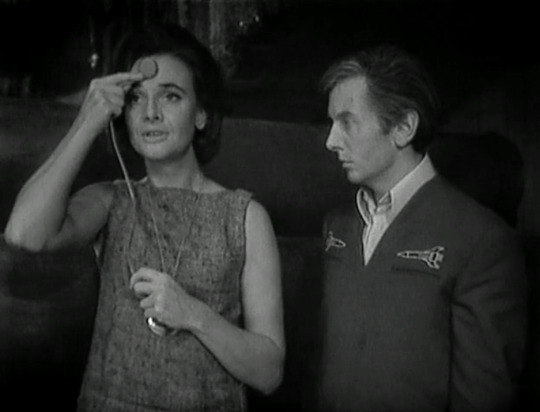
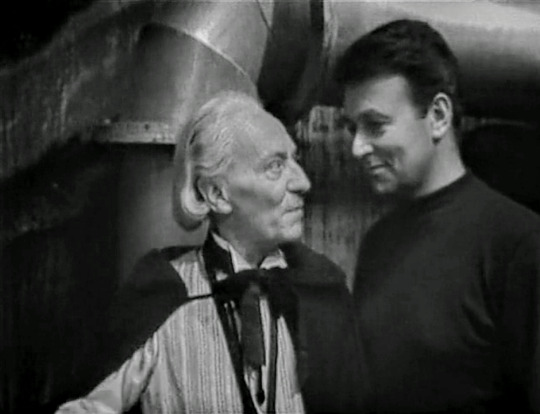
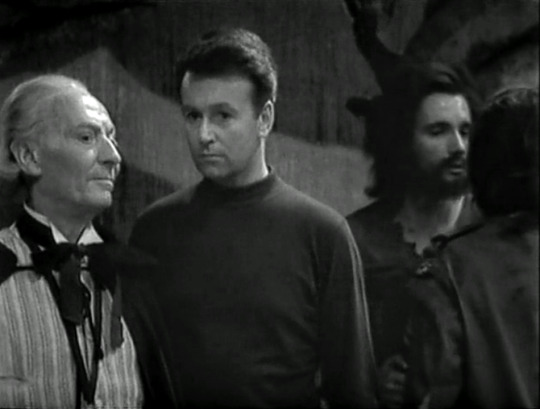

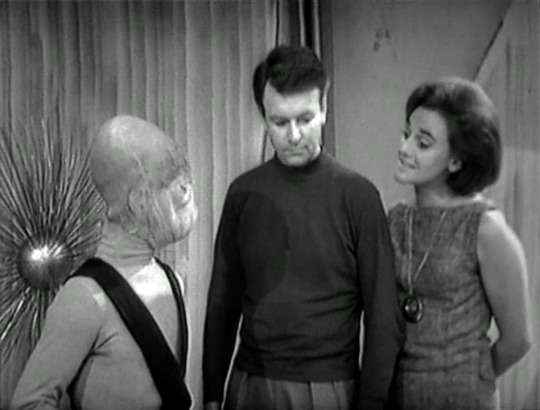

Doctor Who - The Sensorites part six
With Jacqueline Hill as Barbara Wright, William Russell as Ian Chesterton, Carole Ann Ford as Susan Foreman, William Hartnell as The Doctor, Ilona Rogers as Carol and Stephen Dartnell as John
#doctor who#classic who#ian chesterton#william russell#the doctor#william hartnell#susan foreman#carole ann ford#barbara wright#jacqueline hill#the sensorites#classic doctor who
21 notes
·
View notes
Text
0 notes
Link
#BookReview: "Origins" is more than just a history of the Earth; it’s a thought-provoking lens through which to view humanity’s journey and its future.
0 notes
Text
¿DÓNDE ACABAN LAS ANALOGÍAS?
¿La geografía influye y condiciona la realidad política? Lewis Dartnell, da una vuelta de tuerca más en este sugerente, pero a veces epistemológicamente falaz, determinismo geográfico. La biología humana habría sido determinada, en última instancia, no ya por la geografía, sino por la causa última de la geografía: la geología.

Reseña de "Orígenes. Cómo la historia de la tierra determina la historia de la humanidad". Escrito por Lewis Dartnell
Hay un adagio atribuido a Napoleón que dice que "la política es geografía". Realmente no sabemos quien lo dijo primero, pero es una de las intuiciones más elementales de las ciencias políticas y de la geografía. La geografía influye y condiciona, en ocasiones de forma casi determinista, la realidad política. Demos un salto. A principios del siglo XX, Theodosius Dobzhansky, un biólogo y genetista que emigró en 1927 a EE.UU, gustaba de afirmar que "nada en biología tiene sentido si no es a la luz de la evolución". Nada en las ciencias políticas tiene sentido si no es a la luz de la geografía diría un Napoleón del siglo XX. Tuvimos que esperar un poco más. A principios del siglo XXI, el también biólogo y ornitólogo, historiador y geógrafo, Jared Diamond, escribió dos obras indispensables, "Armas, gérmenes y acero" y "Colapso". Dos obras cuya tesis central es que la geografía determinó directamente las posibilidades de "inventar" la agricultura de una determinada sociedad y, por tanto, el acceso a la posibilidad de desarrollar sociedades de masas, con división del trabajo, desigualdades y ejércitos, que dominarían sobre las sociedades más igualitarias. El acceso a la política entendida como una resolución de problemas en las sociedades de masas, por tanto, también parecería determinado geográficamente.
El autor de "Orígenes: cómo la historia de la Tierra determina la historia de la humanidad", Lewis Dartnell, da una vuelta de tuerca más en este sugerente, pero a veces epistemológicamente falaz, determinismo geográfico. La tesis principal sería, de forma sucinta, que la biología humana (su evolución) habría sido determinada, en última instancia, no ya por la geografía, sino por la causa última de la geografía: la geología. ¿Estamos ante lo que algunos críticos han denominado un "Diamond-redux"?
La hipótesis de partida: la evolución del género "Homo" habría sido catalizada por la especial configuración tectónica del Rift Valley, cuya formación produjo valles profundos con lagos que estaban rodeados por llanuras, y por los ciclos astronómicos combinados de variación orbital de Milutin Milanković, que habría producido un cambio de bioma en la región, pasándose de la pluvisilva tropical a la sabana (con amplia inestabilidad climática). Esto, para Dartnell, sería el origen de la presión selectiva última (que es aquella que causa las presiones selectivas próximas, por ejemplo, la escasa disponibilidad alimenticia que presionaría por una cooperación en la obtención de alimentos).
Esto incluye un análisis geológico y climático que abarca, desde el inicio de la última edad de hielo hace 55 millones de años, hasta la actualidad (recordemos que todavía estamos estrictamente en una edad de hielo: su existencia la marca la existencia de hielo en los polos terrestres). Habría sido la mayor, o menor extensión del hielo, la principal guía y presión para la migración del género "Homo" (primero "Homo erectus" y, posteriormente, "Homos sapiens") alrededor del mundo. También incluye el análisis biogeográfico del supercontinente Eurasia y del resto de continentes y la explicación de su mayor diversidad, tanto en plantas domesticables, como en animales. Este es un tema ya discutido por Diamond en sus libros y, en el caso de Dartnell, pocas aportaciones hace. De hecho, se puede considerar su "versión de la historia" mucho más "relajada" en términos bibliográficos y mucho menos elaborada en términos narrativos.
Tras este estudio de la influencia de la geografía en la historia evolutiva de la humanidad, Dartnell da el salto de la "prehistoria a la historia". Pasa a explicar cómo las rutas comerciales han sido influidas por la geografía: las Talasocracias se formaban en "ensenadas naturales" donde las diferentes poblaciones podían conectarse por mar de forma mucho más eficiente que por tierra (Grecia y la Liga Hanseatica); El trazado de la Ruta de la seda venía completamente determinado por la presencia de "oasis" húmedos en medio de la zona más árida del planeta, que va desde el desierto del Gobi, pasando por Irán y buena parte del Levante. Estos oasis, a su vez, vienen favorecidos por la presencia de fallas transformantes; Otro ejemplo es cómo se produjo el progreso en la navegación marítima y su obvio condicionamiento completo a las corrientes de viento y oceánicas.
La última parte del libro tiene un poco más de Vaclav Smil o de Antonio Turiel. Aquí Dartnell hace un rápido recorrido sobre cómo cómo pasamos de la fuerza muscular a la eólica y la hidráulica y luego a los combustibles fósiles, llevando al lector a través de la era del carbón, la máquina de vapor y luego el petróleo. También aquí se interesa específicamente por cómo se formaron estos recursos y por qué se encuentran donde se encuentran. Hace lo propio con muchos de los recursos que son necesarios para las energías renovables. Sin embargo, no se prodiga demasiado en detalles.
En absoluto hay que comprender lo narrado en este libro por Lewis Dartnell como un reduccionismo simplificador, pese a que la redacción del libro así se presente a interpretar. Incluso las obras que hemos nombrado también se suelen interpretar en este sentido. No, la única razón de que estemos aquí tal y como somos no es la geología o la geografía. Ni si quiera el clima, o las presiones evolutivas que nos han hecho cooperativos. Es todo a la vez. Todo interaccionando. Las analogías que se utilizan para la popularización del conocimiento, sin embargo, no son inocentes. El compromiso entre simplificación pedagógica y desinformación es, en no pocas ocasiones, muy inestable. Y en ocasiones se ve influenciado por intereses ideológicos de la editorial o de la autoría. Bien aprovechado, este texto es sugerente. Interpretado literalmente puede llevarte a ser una persona más de las que pontifica en la barra de un bar.
ENLACE a la reseña publicada en Telegraph
0 notes
Text
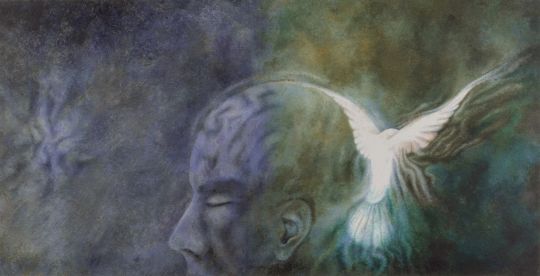
#the barbarian#emerson lake and palmer#carl palmer#greg lake#keith emerson#nic dartnell#bela bartok#elp
23 notes
·
View notes
Text

Emerson, Lake & Palmer - Emerson, Lake & Palmer (Island UK/Atlantic-Cotillion US, 1970) - Illustration by Nic Dartnell
Image courtesy of Discogs.
#cover art#album#album cover#album covers#albums#art#70s#70s music#70s rock#1970#emerson lake and palmer#70s pop
0 notes
Text
Study will fill data gap on endangered local sharks
Tagging reef sharks for the new study (photo credit: James Dartnell) (CNS): The Department of Environment (DoE) has secured UK funding for pop-off satellite archival tags to study the movements of Caribbean reef sharks (Carcharhinus perezi) in the ocean around the Cayman Islands. Due to their ecological and socio-economic significance to Cayman, all sharks are protected species and are now…
#Caribbean reef shark#Darwin Plus Local#Department of Environment#Dr Johanna Kohler#Featured#John Bothwell#Tim Austin
0 notes